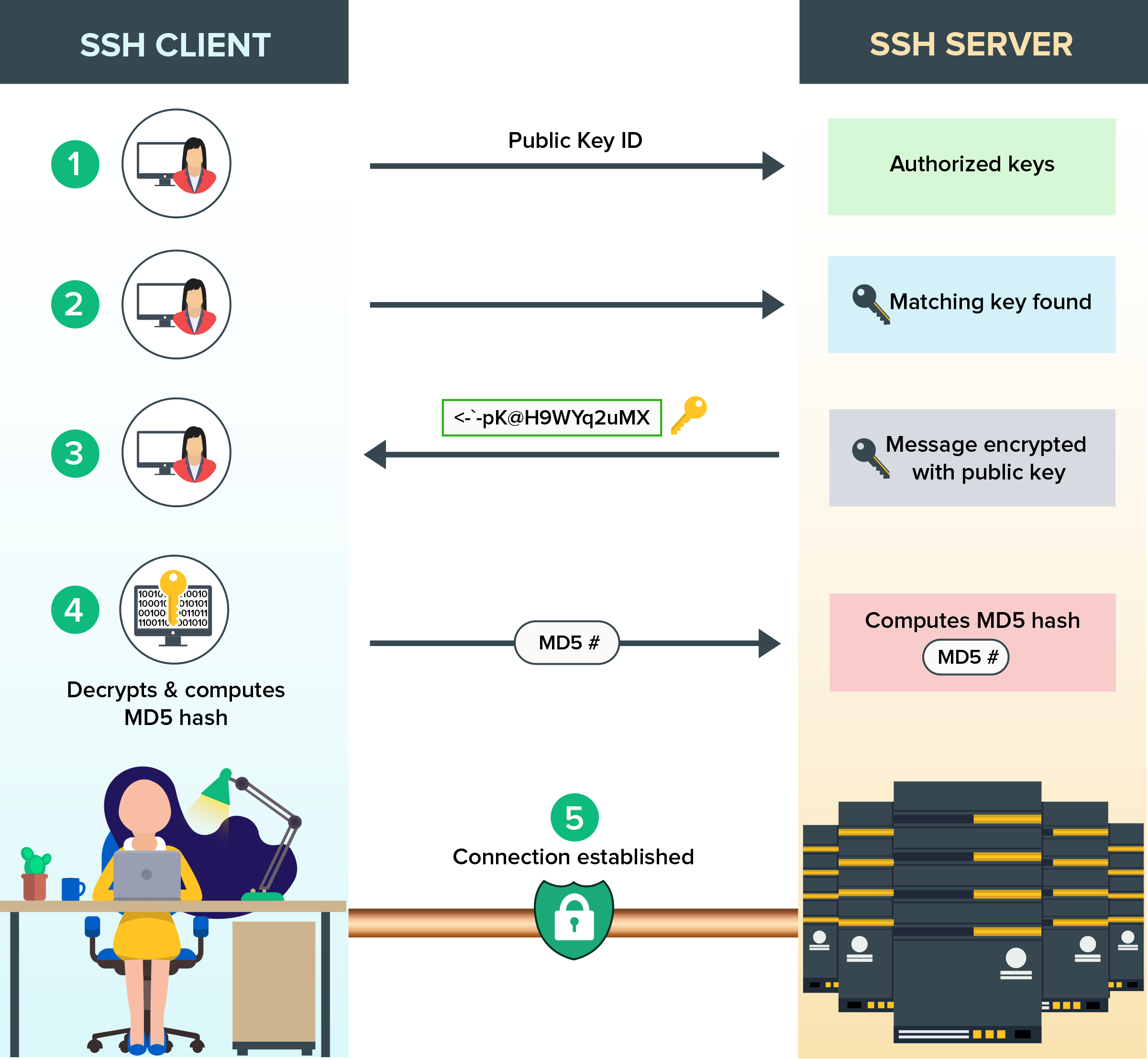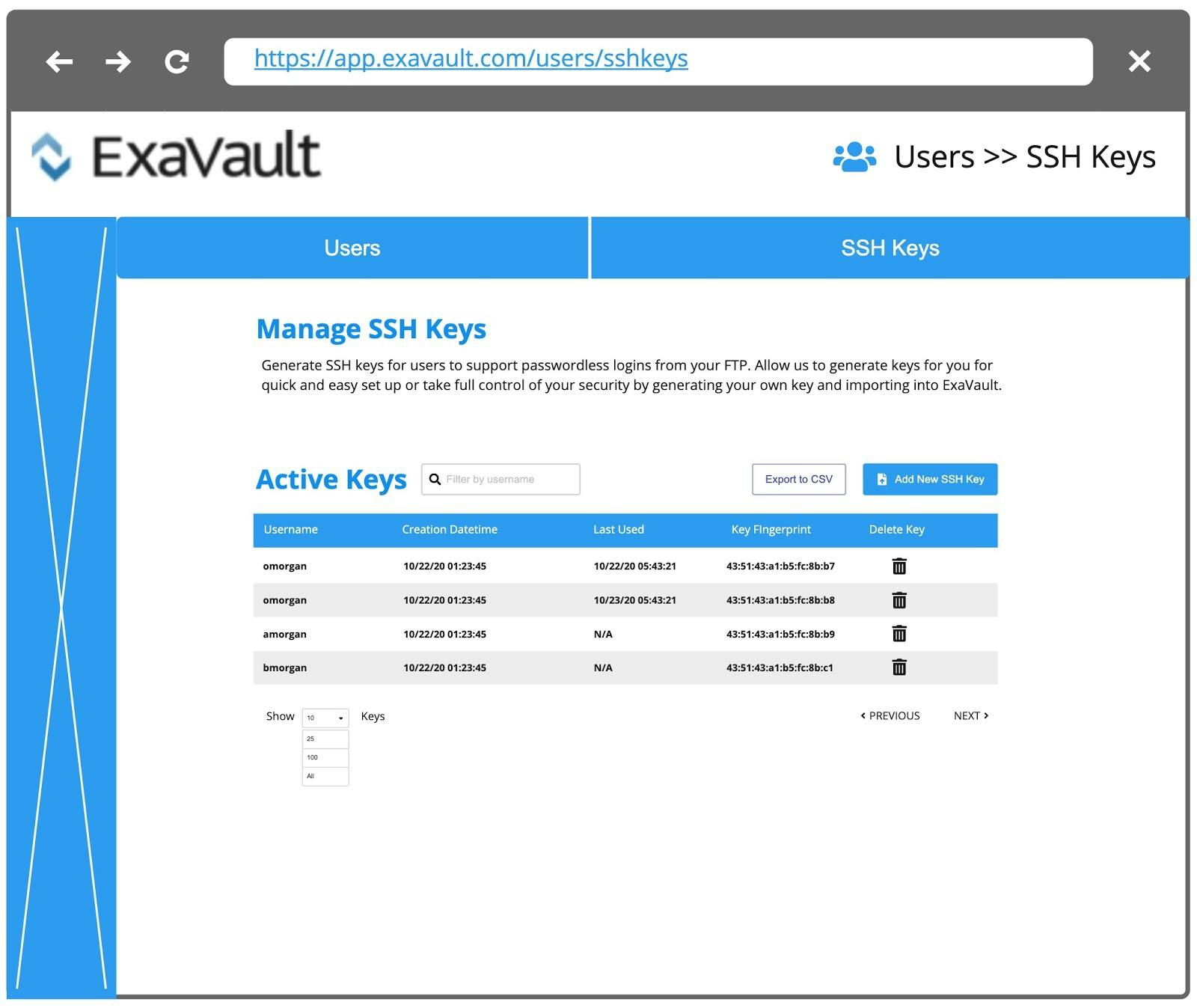Mastering RemoteIoT SSH Key Management: The Cornerstone Of IoT Security
Are you leaving your IoT devices vulnerable to cyber threats? Ignoring robust RemoteIoT SSH Key Management is akin to leaving your front door wide open in the digital world. In today's interconnected landscape, securing remote access to Internet of Things (IoT) devices is no longer optional. The proliferation of IoT devices, from smart home appliances to industrial sensors, has expanded the attack surface for malicious actors. One of the most critical aspects of securing these devices lies in the meticulous management of Secure Shell (SSH) keys, particularly within the RemoteIoT ecosystem.
Securing remote access is the foundation of any secure IoT infrastructure. In the context of RemoteIoT, this frequently involves authenticating users on remote servers using SSH keys. Traditional password-based authentication is increasingly vulnerable to brute-force attacks and credential theft. SSH keys, on the other hand, offer a more robust and secure alternative. However, the sheer number of IoT devices and users accessing them can make SSH key management a complex and error-prone task. Centralized administration emerges as a game-changer in this scenario, enabling organizations to enforce standard security policies across their entire RemoteIoT infrastructure.
| Category | Details |
|---|---|
| Topic | RemoteIoT SSH Key Management Best Practices |
| Relevance | Cybersecurity, IoT Security, Network Administration |
| Key Benefits | Enhanced security, simplified audits, improved compliance |
| Target Audience | Network administrators, cybersecurity professionals, IT enthusiasts |
| Related Technologies | SSH, IoT platforms (e.g., Raspberry Pi), Key Management Systems |
| Best Practices | Centralized management, key rotation, access control |
| Tools & Strategies | Key management software, automation scripts, security policies |
| Compliance | Adherence to industry standards and regulations |
| Vulnerabilities | Unauthorized access, data breaches, compromised devices |
| Reference Website | National Institute of Standards and Technology (NIST) Cybersecurity |
Data integrity and regulatory compliance are paramount in many industries. Effective RemoteIoT SSH key management plays a crucial role in achieving these objectives. By implementing strong authentication and access control measures, organizations can protect sensitive data from unauthorized access and maintain the integrity of their systems. Moreover, adhering to industry-specific regulations often requires demonstrating robust security practices, and SSH key management is a key component of that demonstration.
- Carlos Vives Unveiling The Life Music Of The Colombian Star
- Explore Flowers 2016 What You Need To Know
SSH key management tools are essential for organizations looking to automate and streamline the process of managing SSH keys across their RemoteIoT devices. These tools eliminate the complexity of manually distributing and managing keys, reducing the risk of human error and improving overall security posture. They offer features such as key generation, storage, rotation, and revocation, as well as access control and auditing capabilities. The choice of RemoteIoT platform significantly impacts the ease and effectiveness of SSH key management. Some platforms offer built-in SSH key management features, while others require manual configuration. The ideal platform should provide a user-friendly interface for managing keys, as well as robust security features to protect them from unauthorized access.
IoT devices offer automation, efficiency, and convenience, but leaving them unmonitored can open up avenues of vulnerability. These devices often lack the robust security features found in traditional computers, making them attractive targets for cybercriminals. By neglecting SSH key management, organizations risk exposing their IoT devices to unauthorized access, data breaches, and other security threats. In business settings, IoT remote access is key to maintaining operational efficiency and responsiveness. Remote monitoring and control of IoT devices allow organizations to quickly identify and resolve issues, optimize performance, and reduce downtime.
However, this remote access also presents a significant security challenge, as it can create vulnerabilities if not properly secured. Selecting the best platform necessitates a careful evaluation of various factors, including scalability, security, and compatibility with the specific requirements of your Raspberry Pi devices. Consider the number of devices you need to manage, the level of security you require, and the technical expertise of your team. Choosing the right platform can significantly simplify SSH key management and improve your overall security posture.
- The Jolson Story Fact Vs Fiction Ruby Keelers Role
- A Cry For Help The Tracey Thurman Story Watch Now Learn
Managing SSH keys for remote IoT devices is an indispensable aspect of cybersecurity. It's not just a technical detail but a fundamental element of protecting sensitive data and preventing unauthorized access to remote systems. By neglecting SSH key management, organizations expose themselves to a wide range of cyber threats. By adopting best practices, utilizing the right tools, and adhering to compliance requirements, organizations can dramatically enhance their security posture.
This includes implementing strong authentication measures, automating key rotation, and regularly auditing key usage. By taking a proactive approach to SSH key management, organizations can significantly reduce their risk of cyberattacks and maintain the integrity of their systems. RemoteIoT SSH key management is a critical component of securing modern network infrastructures. It's the foundation upon which secure remote access is built, ensuring that only authorized users can connect to sensitive resources.
Without proper SSH key management, organizations risk exposing their systems to unauthorized access, data breaches, and other cyber threats. By implementing best practices for SSH key management, organizations can protect their systems from unauthorized access and cyber threats. This includes adopting a centralized approach to key management, automating key rotation, implementing strong access controls, and regularly auditing key usage. By taking a proactive approach to SSH key management, organizations can significantly reduce their risk of cyberattacks and maintain the integrity of their systems.
IoT devices have become integral to modern life, providing convenience and efficiency across industries. However, their security must be prioritized to avoid vulnerabilities. In the wake of high-profile cyberattacks targeting IoT devices, the importance of SSH key management cannot be overstated. For instance, the Mirai botnet attack in 2016 exploited insecure IoT devices, causing widespread internet outages. This incident highlighted the need for robust security measures, including SSH key management, to protect against similar threats in the future.
Industry leaders such as Amazon Web Services (AWS) and Microsoft Azure have recognized the importance of SSH key management in securing IoT ecosystems. These tech giants offer comprehensive solutions that integrate seamlessly with their cloud platforms, providing organizations with the tools needed to manage SSH keys effectively. By leveraging these platforms, businesses can enhance their security posture and protect their IoT infrastructure from potential threats. In addition to technological solutions, fostering a culture of cybersecurity awareness within organizations is essential.
Employees must be trained to recognize the importance of SSH key management and adhere to best practices. This includes regular updates on emerging threats and security protocols. Furthermore, collaboration with industry experts and participation in cybersecurity forums can provide valuable insights into the latest trends and innovations in SSH key management. Organizations should also consider implementing multi-factor authentication (MFA) as an additional layer of security. MFA requires users to provide two or more verification factors to gain access to resources, reducing the risk of unauthorized access even if SSH keys are compromised.
RemoteIoT SSH key management is essential for securing remote system and network access. It's the digital equivalent of a secure lock and key, ensuring that only authorized users can access sensitive resources. Without proper SSH key management, organizations risk exposing their systems to unauthorized access, data breaches, and other cyber threats. It's a way for organizations to manage their SSH keys to keep IT environments safe. This involves implementing a comprehensive strategy that encompasses key generation, storage, distribution, rotation, and revocation.
By taking a proactive approach to SSH key management, organizations can significantly reduce their risk of cyberattacks and maintain the integrity of their systems. The choice of RemoteIoT platform significantly impacts the ease and effectiveness of SSH key management. Some platforms offer built-in SSH key management features, while others require manual configuration. The ideal platform should provide a user-friendly interface for managing keys, as well as robust security features to protect them from unauthorized access. Setting up SSH key management on a RemoteIoT platform is straightforward.
The specific steps will vary depending on the platform you choose, but the basic principles remain the same. Sign up for the platform of your choice and log in to the dashboard. This will provide you with access to the key management features and tools you need to configure SSH key management for your RemoteIoT devices. Deploy keys to Raspberry Pi: Upload the public key to your Raspberry Pi and store it securely. This allows the Raspberry Pi to authenticate users using SSH keys, rather than passwords. RemoteIoT enables you to securely connect and manage machines and devices from anywhere.
This remote access provides organizations with greater flexibility and control over their IoT devices. However, it also presents a significant security challenge, as it can create vulnerabilities if not properly secured. Millions of machines deployed by thousands of clients secure remote connections through effective SSH key management. This demonstrates the importance of SSH key management in today's interconnected world. By implementing robust security measures, organizations can protect their systems from unauthorized access and maintain the integrity of their data.
Take action today by implementing a robust SSH key management strategy. Don't wait until a security breach occurs to prioritize SSH key management. By taking a proactive approach, organizations can significantly reduce their risk of cyberattacks and protect their valuable data. With RemoteIoT SSH key management, you can centrally manage and discover all authentication keys and SSH login files. This centralized approach simplifies key management, improves security, and reduces the risk of human error.
It also makes it easier to track key usage and identify potential security vulnerabilities. This article is your ultimate guide to best RemoteIoT SSH key management. It provides a comprehensive overview of the key concepts, best practices, and tools that organizations need to effectively manage SSH keys for their remote IoT devices. By following the best practices outlined in this article and leveraging the right tools, you can ensure that your RemoteIoT devices remain secure and compliant.



Detail Author:
- Name : Bradley Watsica
- Username : lilly.denesik
- Email : klocko.lisa@tromp.org
- Birthdate : 1971-07-10
- Address : 547 Kulas Club South Abby, ME 25749-0261
- Phone : 1-763-550-7993
- Company : Wiegand, Weissnat and O'Hara
- Job : Numerical Control Machine Tool Operator
- Bio : Dicta enim aspernatur quam aut. Ad voluptate ipsum fuga qui necessitatibus non voluptatem.
Socials
linkedin:
- url : https://linkedin.com/in/dale_xx
- username : dale_xx
- bio : Aut vel quia maxime.
- followers : 6511
- following : 1815
instagram:
- url : https://instagram.com/dale6359
- username : dale6359
- bio : Hic velit esse sed quos. Suscipit expedita reprehenderit sit quod quam totam maxime.
- followers : 2303
- following : 954
facebook:
- url : https://facebook.com/dale.pfannerstill
- username : dale.pfannerstill
- bio : Error impedit adipisci est voluptatem ratione.
- followers : 2269
- following : 1515
twitter:
- url : https://twitter.com/dale_pfannerstill
- username : dale_pfannerstill
- bio : Perspiciatis dolor tempore aspernatur quos. Id doloribus nisi voluptatem suscipit animi. Ex dignissimos nisi rerum. Fugit corporis et aut blanditiis qui.
- followers : 3030
- following : 220